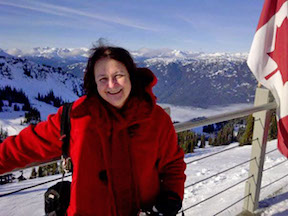- What are some implications of Lukacs' title?
- Which political events in Europe lie behind the urgency of Lukacs’ views, what was his own situation, and how has he sought to take part in these changes? (had served in Hungarian Soviet government until exiled; witnessed the rise of Fascism and undermining of socialism before WW II; advocates "realism" in the attempt to see the totality of social relations and to anticipate their developments)
- In particular, what traumatic events occured in the year 1938? (the invasion of Czechoslovakia)
- What does Lukacs believe to be the state of society under capitalism? What events can cause this totality to be perceived? (1036-37, moments of crisis, long periods of disintegration)
- What contradictions are more apparent in a state of crisis? (1038, contradictions between appearance and reality)
- Are there points on which Lukacs and James would have agreed, and if so, to what do you attribute this?
- Which qualities does Lukacs admire in what he considers “realist” authors such as Thomas Mann? (they show ways in which thought and feeling grow out of the life of society) Which other authors does he seem to value, and why do you think this may be so? (1039)
- Which qualities in expressionism and surrealism does he find lacking or complicitious with fascism?(1041, deal only with immediate experience)
- What was German Expressionism? In what way does it fail to convey a “totality,” and what in Lukacs’ terms is meant by “totality”? (1041, presents immediae chared emotoins in vivid colors; he finds it abstract rather than analytical in its relation to society)
- How does Lukacs define the work of a realist writer? (to discouver social relations and to give them shape, 1042) What is his critique of natualism? (1042)
- How do Lukacs and Ernst Bloch interpret the purpose and meaning of Joyce’s Ulysses? Would there views be accepted by most critics today?
- What feature of the relationship of modern artistic movements to their predecessors does he identify? (1043) Based on what you know of early twentieth-century artistic movements, is this critique at least partly valid?
- On what grounds does he object to the practice of montage? (1045, lack of totality) Of the "derangement of the sentence," that is, the violation of rules of syntax and vocabulary? (1046) How might such art be defended from a political perspective?
- What critique does Lukacs make of psychologically-influenced literature, and of Freudian approaches to literature?
- What does he mean by the anticipatory function of literature?
- What is Lukacs’ charges against an self-proclaimed “avant-garde”? How can we know if a writer belongs to such a group? (1049)
- What is Lukacs’ complaint against modernists who favor the recuperation of “primitive” cultures? (1050) Have others made similar critiques?
- On what grounds does he dislike formalist modernism? (1050)
- Can you think of examples? Where in his view can we find evidence of popular or people’s art and culture? (writings which grow out of the life of the people, 1054)
- What elements of Marx’s views do you think form a background for/have influenced Lukacs’ thinking?
- Have later marxist/socialist critics invariably favored “realism” over alternative forms of expression? (1058, Brecht)
- Which aspects of Lukacs’ views have been criticized? Can you think of ways of defending the “avant-garde” or romantic/expressionist views of literature?
selections from the Norton Anthology of Theory and Criticism, 1030-40, 1046-58
